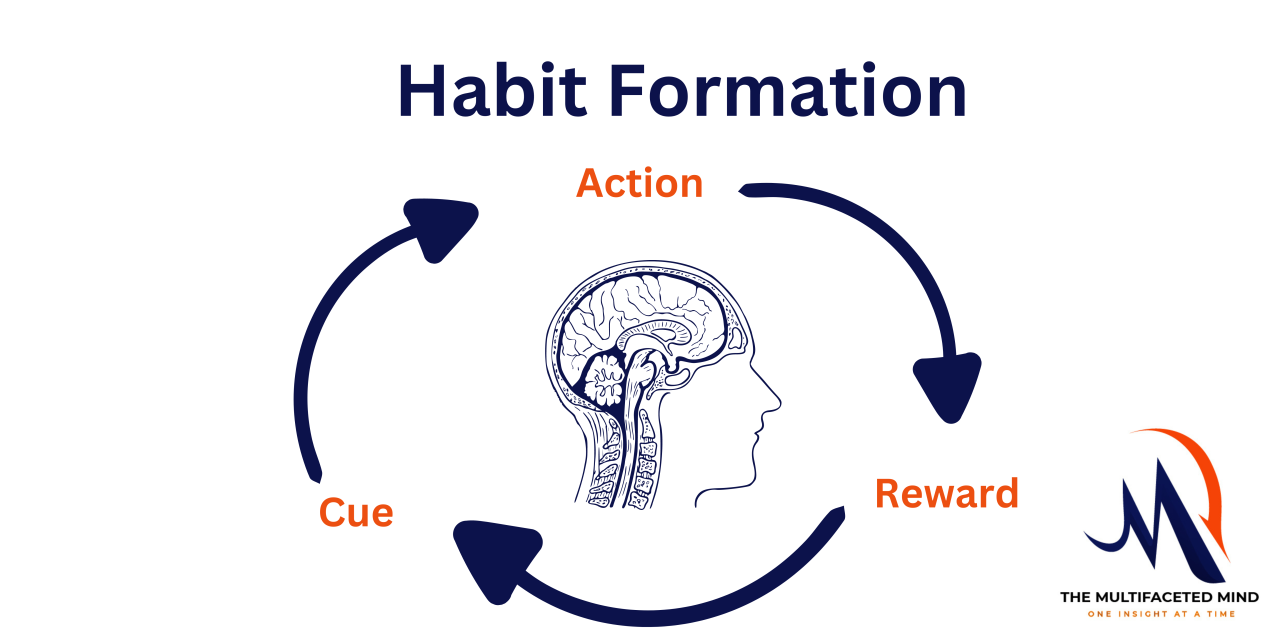It’s About Habit Formation
Habit formation is extremely crucial for personal development and contributes significantly in various areas of life. Learning just how habits develop can help you to build more effective ones and lead a life that is more healthful and productive. Following the science underlying habit formation, various techniques for developing a correct habit, and methods of ensuring retention of that habit will be discussed with Creating Lasting Change in Your Life blog.
The Science of Habit Formation
How Habits Are Created
Habits are formed in three-part loop, called the habit loop: cue, routine, and reward. The habit loop basically describes the way in which habits actually form:
- Cue – A trigger that starts off a habit.
- Routine – The specific behavior or the action taken.
- Reward – The benefit from performing the habit.
Once you have an understanding of the loop of creating lasting change in your life, you are able to point out some cues in your daily life and adapt your routines base on this to have a positive habit.
The function of Repetition
Repetition is immensely important in changing a behavior into a habit. A large accompanying literature corroborates the assertion that it takes an average of 21-66 days for a new behavior to become automatic. Repeated engagement with the desired behavior while being conscious of incentives and cues will create the habit.
Mindfulness is key in habit formation:
It is important to know your triggers and responses: in other words, this is really about becoming aware of your habits in order to make an intentional change. Mindfulness allows you to break negative habits and introduce positive ones.

Techniques for Creating Effective Habits
-
Start Small:
Starting small is the first and foremost rule when you want to form a habit. Be in progress of one behavior at a time and do not feel too much pressure on yourself. For instance, if you want to exercise regularly, start with just 5 to 10 minutes of movement each day. Over time, increase this duration when you feel confident.
-
Use the two-minute rule:
Starting with a task that takes less than two minutes to do is known as the two-minute rule, and when applied to the initiation of a habit, it comes as a great help since it minimizes the barrier to starting. For example, reading a book for two minutes may get you to read more once you start.
-
Set clear goal:
Be clear and specific with your goals; this is the most important point for effective habit formation. Rather than saying, “I want to exercise more,” be certain about I will go for a 30-minute jog at 7 AM every morning.” Clarity of adherence within yourself is much strengthened, therefore, the habit seems much easier to measure.
Maintaining Your Habits
-
Track Your Progress:
Monitoring your habits could significantly enhance your chances of being successful. Use a journal, habit-tracking app, or calendar to keep track of your actions. A visual reminder of how far you have come can serve as a great motivator.
-
Get an Accountability Buddy:
An extra pair of eyes over one’s shoulder can keep one on course. Tell a friend or family member about your goals, and check in with each other each week to discuss how each of you has fared.
-
Celebrate the Small Victories:
Enjoy the little bumps that tell you, “You’re on the right track!” So-called milestone celebrations help not just with positive reinforcement for the habit, but also allow the inflow of positive energy towards doing the tasks again tomorrow.

In conclusion:
Mastering habit formation can change your life forever. By knowing how habits are formed, how to use creating lasting change in your life techniques effectively, and how to commit to maintaining such habits, change becomes real. Start small, be aware, and most important, create a celebration for yourself. Such habits, hopefully, shall begin looking natural in your life in no time.
Read our more articles for Habit Formation


